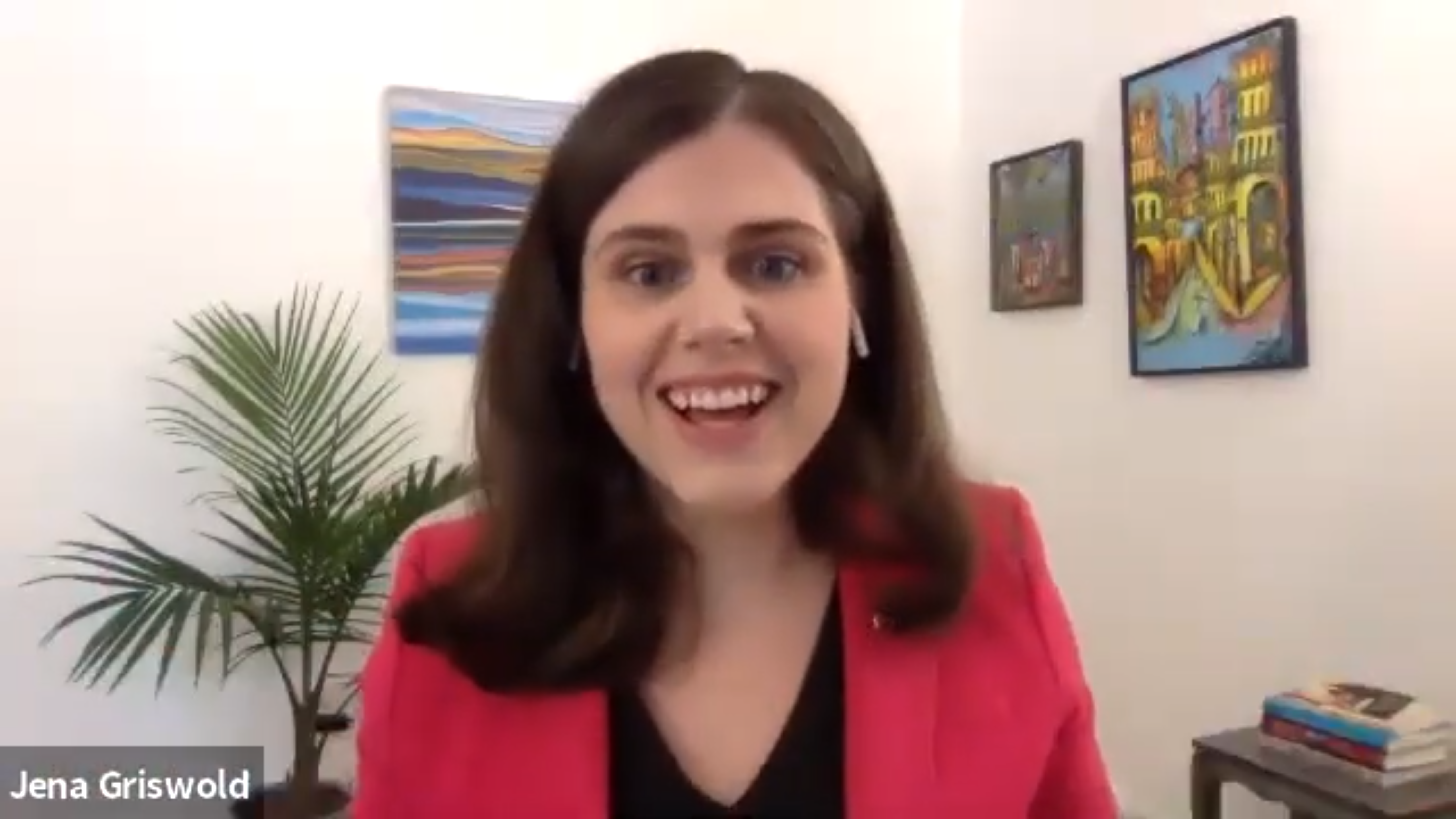Welcome back to our continuing coverage of Netroots Nation 2020, taking place exclusively online for the first time ever due to the novel coronavirus pandemic.
It has been long a tradition at Netroots — America’s largest annual gathering of progressives — to give attendees a choice of three featured panels during at least one or two of the timeslots during the three-day conference.
Today’s menu of featured panels consisted of three compelling sessions about pressing topics: legal initiatives to protect vulnerable communities from the Trump regime in the courts, tackling the climate crisis, and defending voting rights.
This post will summarize the voting rights panel, which was moderated by Vincent Warren, the executive director of the Center for Constitutional Rights and a leading expert on racial justice, criminal justice and discriminatory policing.
The session is available to watch on demand if you’re interested.
Panelists included:
- Denise W. Merrill, who is currently serving her second term as Connecticut’s 73rd Secretary of the State, and has worked to expand voter participation through Election Day, online, and automatic voter registration through their Department of Motor Vehicles (DMV). She also serves on the Board of Advisors to the U.S. Election Assistance Commission.
- Jena Griswold, Colorado’s thirty-ninth Secretary of State, the youngest Secretary of State in the country, and only the tenth woman in Colorado’s history to hold current statewide constitutional office. She has described her worldview as informed by her blue collar, rural upbringing within the state and, in 2019, spearheaded and passed into law one of the largest pro-democracy, ballot access reform packages in the nation.
- Jocelyn Benson, the Secretary of State of Michigan, a former Dean of Wayne State University Law School in Detroit, a co-founder of the Military Spouses of Michigan and a board member of the Ross Initiative in Sports for Equality. She is also the author of State Secretaries of State: Guardians of the Democratic Process.
The primary question put to each of the three Democratic Secretaries of State was how they could protect the vote in their states in the midst of a global pandemic, the various voter suppression tactics of the Trump regime, and the effect of the first two items on marginalized groups.
Griswold touted the primary recently held in Colorado on June 30th, where vote at home, ballot drop boxes (of which she’s had one hundred and ninety-one installed), same day registration and in person voting were all available.
The primary had the highest turnout of any non-presidential primary election in the history of the state, especially among people of color.
It’s a different story in New England. Merrill told attendees that Connecticut is tied for last with Alabama for ease of access to their means of voting.
Part of the problem is infrastructural, but it has also been an uphill battle against the state’s Republicans, who have not been shy about filing lawsuits against loosening the rules regarding absentee ballots, the implementation of ballot drop boxes and expanded access to early voting. It also doesn’t help that, due to a history of voter suppression that goes back decades within the state, people of color are typically reluctant to not vote at home. That said, 82% of the public within the state in a recent poll wanted the option of not having to vote in person.
Benson emphasized security and accessibility as her top concerns. She stressed the need for greater security provisions to prevent any disruption of the 2020 elections. Michigan has been focusing on educating voters as much as possible to prepare them for the changes coming with the availability of vote at home.
(Benson has also had to deal with personal attacks by Donald Trump.)
She emphasized that vote at home was initiated nationally on behalf of military personnel and their families, and that the dilution of the Voting Rights Act in recent years affected two local townships; she would like to see the Voting Rights Act restored to its previous, or in a more vigorous, state.
All three officials confirmed that CARES funds had helped them in their work to maintain their voting infrastructure, and none have seen any evidence that shows vote at home to benefit either major political party once implemented.
Voting rights are sure to be discussed again later today when Stacey Abrams takes the virtual stage for the Netroots Nation opening keynote.
You’re welcome to watch that keynote along with us (it will be free to stream, unlike the conference’s panels and trainings). If you can’t watch, we’ll have a recap up here on the Cascadia Advocate after it concludes.

